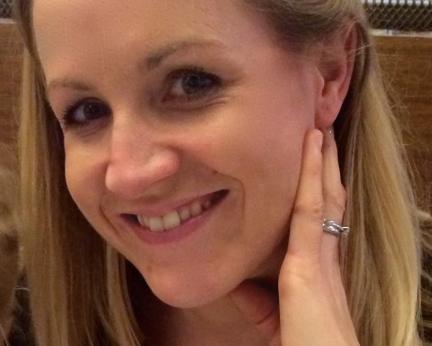"Every day I have the opportunity to make a difference to those affected by cancer."
Meet Sairanne to discover how her role as a therapeutic radiographer is vital in the treatment of cancer.

Sairanne Wickers
Consultant breast radiographer (radiotherapy)
I’ve always been interested in science at school and knew that I wanted to work in a clinical profession, just not as a doctor or nurse. I started researching allied health professions and came across therapeutic radiography. The combination of biology and physics whilst helping people suffering from cancer sounded really interesting. I spent a couple of weeks in a radiotherapy department meeting the staff and patients and knew this was what I wanted to do.
How did you become a therapeutic radiographer?I qualified as a therapeutic radiographer after completing a three-year degree course at the University of Portsmouth. Despite the packed weeks of lectures and long hours on clinical placement, the prospect of leaving university with a vocational degree with professional qualifications and great job prospects made it all worth it. I haven't regretted it for a second.
To reach my current level as a consultant radiographer has taken a lot of hard work, some luck and great managers who have invested in my development.
What is your day-to-day like?On a typical day, I may get a referral for a patient who has recently had surgery for breast cancer and requires postoperative radiotherapy. At my new patient clinic, I meet very anxious patients and their families, and try to reassure them about their radiotherapy treatment, discuss the side effects and support them in their post-diagnosis recovery.




